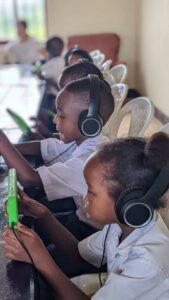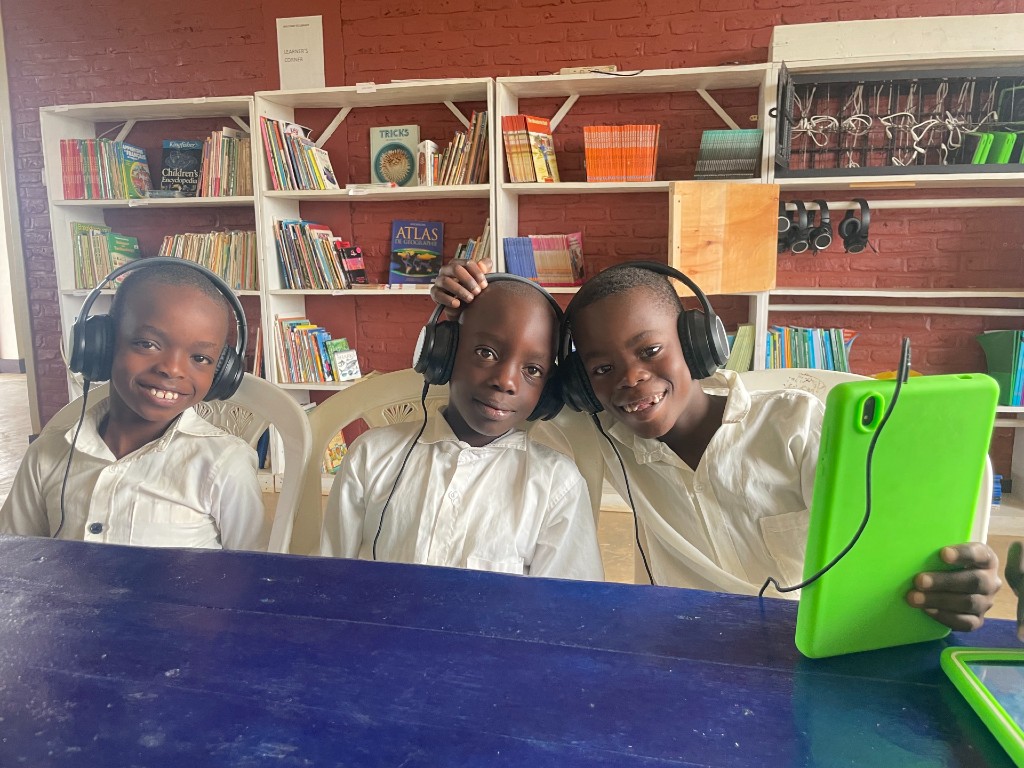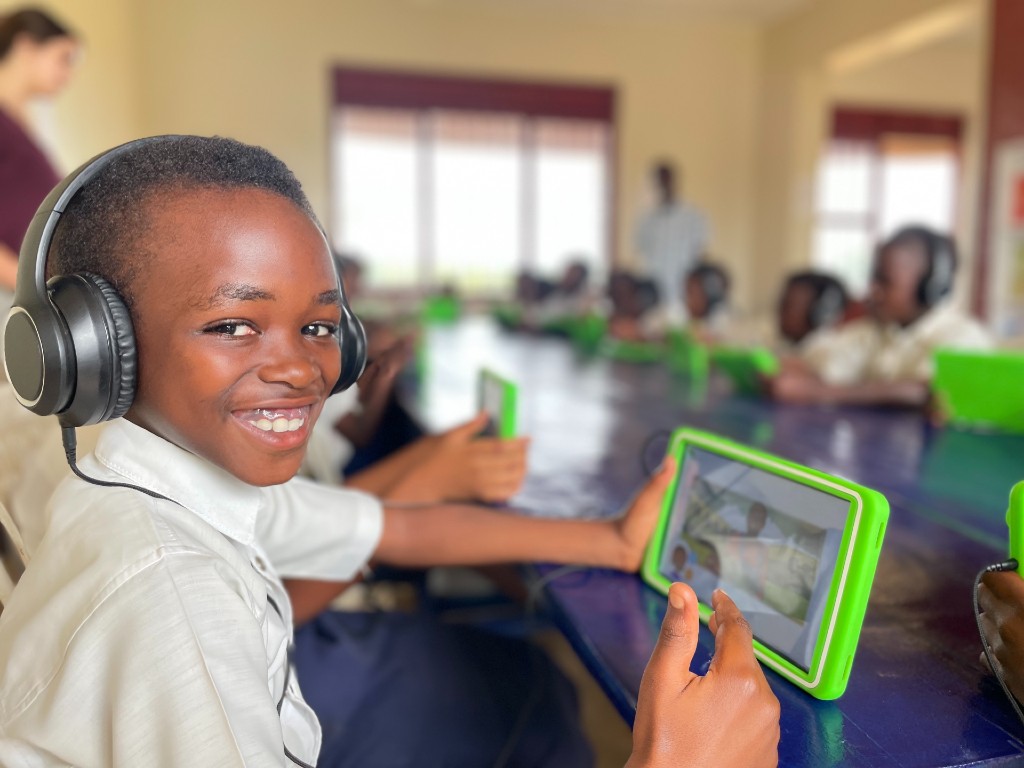In 2022, high school student Paisley Beck traveled from her home in the United States to Rwanda for an internship to support a pilot of the tablet-based foundational learning program. She returned one year later to measure some of the impacts of the program. This is her story.
The eager students filed one by one into the library, the space where they take turns having sessions with the learning tablets each week. “Students get very excited to go to the library for their time on the tablet every week,” a teacher at the Ishimwe Pioneer School shared with me. As a volunteer who implemented Imagine Worldwide’s program and witnessed the results, I have been amazed at the impacts of this education technology.
In June of 2022 after my sophomore year in high school, I traveled to Gashora, Rwanda for an internship to implement Imagine Worldwide’s tablet-based literacy and numeracy program at the Ishimwe Pioneer School. Along with two other interns, I set up 75 learning tablets for the primary school (grades Pre-K through 6th) with nearly 300 students. Imagine provided me with basic training and it was incredibly easy to set up the technology and teach hundreds of students and their teachers to use the program in less than three days (and it would have been faster with better wifi!). After setting up the program and acclimating the teachers and students to this new technology, they were able to use these tablets weekly for the entire school year.
This summer, I returned to Gashora with my fellow intern, Hadley Peterson, to measure the impact of Imagine’s program on the students and teachers. The results were exceptional. There were numerous positive impacts I observed — students’ improvement and ease academically, confidence and focus, and overall comfort with technology.
Academic Improvements
 Last summer, I spent the tablet sessions working with students to help their understanding of the instructions that played in their headphones or any material they found challenging. This summer, those same children were able to complete almost entire sessions at higher levels without the help of a volunteer or teacher. I found that the tablets helped not only the students’ long-term retainment of English, but also helped the students quickly improve their confidence, as they completed mathematical and language proficiency tasks. I even noticed that students could communicate better with me in English a year later. When interviewing teachers about their observations regarding the tablets, I learned that the tablets helped the students improve in math, reading, writing, level of attention and level of confidence, along with helping the students develop listening, speaking, and social skills through the students’ interactions with one another when they ask for help from each other during tablet sessions. During sessions with older students, the children were able to use the tablets to access the same learning content in French, giving them more of a challenge after they demonstrated proficiency in English.
Last summer, I spent the tablet sessions working with students to help their understanding of the instructions that played in their headphones or any material they found challenging. This summer, those same children were able to complete almost entire sessions at higher levels without the help of a volunteer or teacher. I found that the tablets helped not only the students’ long-term retainment of English, but also helped the students quickly improve their confidence, as they completed mathematical and language proficiency tasks. I even noticed that students could communicate better with me in English a year later. When interviewing teachers about their observations regarding the tablets, I learned that the tablets helped the students improve in math, reading, writing, level of attention and level of confidence, along with helping the students develop listening, speaking, and social skills through the students’ interactions with one another when they ask for help from each other during tablet sessions. During sessions with older students, the children were able to use the tablets to access the same learning content in French, giving them more of a challenge after they demonstrated proficiency in English.
Confidence and Focus
Perhaps what struck me the most was the increased confidence of the students. The individualized pace of learning allowed the students to make mistakes and learn from them, which greatly contributed to their confidence as learners. The tablets created a safe space for them to experiment and learn without the fear of being judged, creating a sense of independence and self-assurance that reflected not only in their academic performance but also in their everyday interactions.
Comfort with Technology
When the students who were the same age as the ones I had last year came in and sat down, I expected I would have to go around reminding them how to drag their fingers on the screen. Instead, I found that they were much more comfortable with this technology than I anticipated. They began their activities independently and were able to understand whether they needed to click, drag, or trace something on the screen without help.
Students Love it
One of the most important components of this program is that students love it and want to use the tablets! When I conducted both student and teacher interviews, it was clear that students were eager to go to the library and learn on the tablets.
In summary, the adaptive learning program that Imagine Worldwide and its partners provide is an incredible tool to facilitate academic growth and personal development all at once. I observed firsthand the power of the tablets to bridge educational gaps and create an engaging learning environment that contributes to the academic growth and personal development of the students.

(Photo Credit: Paisley Beck)
